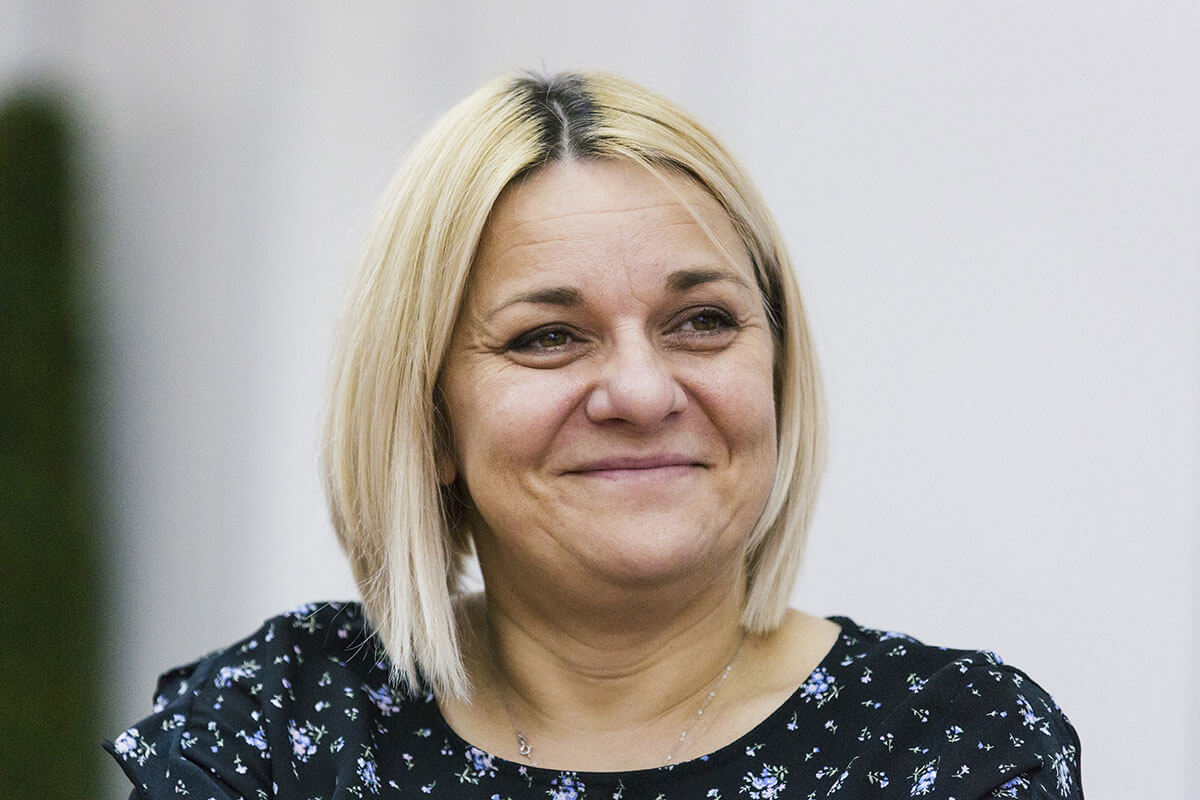In the words of Anastasia Perepylytsia: “I am happy that my experience has become an asset for other people in need.”
Date:

Anastasia Perepylytsia, 44, is no stranger to displacement. In 2014, she had a stable job in finance and lived a normal life together with her husband and two children in Donetsk, eastern Ukraine. But when the Russian army invaded her hometown, she had to flee with her family to Zaporizhzhia, a city situated on the banks of the Dnieper River in the south-east. When the war began in 2022, she had to leave again, relocating to Novovolynsk, in western Ukraine. At first, she struggled to find a job in her field and find information or psychological support, until she came across UN Women’s ‘Community Mobilization for Empowerment’ project. Now, she is using her experiences of displacement to help others in similar situations adapt.
![]()
I have been displaced twice. Both times I was running from war: first, in 2014, when the Russian military occupied my hometown Donetsk and second, after the full-fledged Russian invasion to Ukraine in February 2022.
Back in 2014, my family and I moved to Zaporizhzhia. Despite the difficulties that all internally displaced persons (IDPs) faced, it became my home. Between 2014 and 2015, Zaporizhzhia hosted 127,000 officially registered IDPs from eastern Ukrainian regions. Being an IDP myself, I volunteered for local civil society organizations and engaged in local initiatives to support the most vulnerable among the internally displaced. Later, I enrolled in the ‘Community Mobilization for Empowerment’ project implemented by UN Women in eastern Ukraine, later becoming the Regional Coordinator.
After the Russian offensive this year, the fear for my children’s lives made me flee again – this time, to Novovolynsk city, in Western Ukraine. From the first days of the invasion, communities in west Ukraine have become safe harbours for IDPs from all over the country. But local residents and authorities were new to this experience, so no proper systems were in place. I knew what needed to be done step-by-step, so I went to the local council and volunteered to help.
In Novovolynsk, we organized the humanitarian office. When the number of IDPs reached 7,000 people, I started projects to provide psychological aid, information support and child-friendly spaces. Since April, I have volunteered to be a special adviser to the mayor for the internally displaced.
I want to do as much as I can to help. I am happy that my experience – no matter how difficult and painful – has become not a burden but an asset for other people in need.”